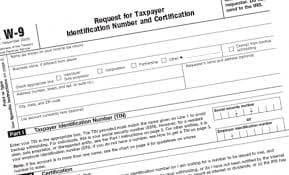What is a Trust Tax Id Number? And Do I Need to Get One?

As a settlor or trustee of a trust, you might have heard about the necessity of getting a trust tax id number. The Internal Revenue Service (IRS) usually requires this for certain entities for the purpose of administering federal tax laws.
Not all kinds or types of trust, however, are required to secure a trust tax id number. Hence, depending on the circumstances, you may or may not need to get a tax id number for the trust.
What is a tax id?
A tax id (EIN or employer identification number) is a type of taxpayer identification number (TIN) used by the IRS for tax administration purposes. Tax ids are often used to identify a business entity. Thus, businesses are generally required to secure a tax id. While trusts are not technically “business entities,” they may be required to get a tax id if they satisfy certain criteria.
Tax ids, moreover, are just one of the many types of TINs utilized by the IRS. An Individual Taxpayer Identification Number (ITIN), for example, is a tax processing number for certain nonresident and resident aliens. Your Social Security Number (SSN) too is also a type of TIN used to identify individuals for tax purposes. However, unlike the other types of TINs, your SSN is issued by the Social Security Administration (SSA). Whereas, all the other TINs are issued by the IRS.
Do I need to get a trust tax id?
It depends.
There are several factors to consider here. First, we need to know whether the trust is revocable or irrevocable. Second, we also have to consider whether the trustor or grantor is still alive or has already passed away. Lastly, we need to find out whether the trust has assets that generate income.
As such, the need for a trust tax id depends on (1) the type of trust, (2) the life or death of the grantor, and (3) the existence of income-generating assets. That said, you are required to secure a trust tax id on the following instances:
1. The trust is irrevocable (and it has income-generating assets)
A revocable trust (sometimes known as a “living trust”) allows the trustor or grantor to change or alter certain provisions in the trust such as, for instance, who the designated beneficiary will be. In this type of trust arrangement, the grantor essentially retains effective control over the trust assets.
The legal effect is that assets in a revocable trust are deemed to still belong to the grantor. Hence, if the trust assets produce income, the grantor will have to report this in his own income tax return. And during the grantor’s lifetime, the trust’s identification number will be the grantor’s SSN. As such, a revocable trust does not usually require a separate trust tax id.
In contrast, an irrevocable trust does not allow the grantor to alter or change the terms of the trust. Once the irrevocable trust is set up, the grantor relinquishes control over the trust assets. The irrevocable trust then is no longer considered as a mere extension of the grantor’s personality. A grantor may thus elect to secure a tax id for the trust.
It should be noted though that if the irrevocable trust has no assets that produce income, a trust tax id need not be secured. In such a case, the grantor can use his SSN as the identification number for the trust. This means that getting a trust tax id would become truly mandatory when (1) the trust is irrevocable and (2) the irrevocable trust has income-generating assets.
2. The grantor is deceased
Whether the trust is revocable or irrevocable, obtaining a trust tax id would become compulsory when the grantor dies. In the case of a revocable trust, the trust becomes irrevocable upon the death of the grantor. Hence, one can say that the grantor’s death effectively converts a revocable trust into an irrevocable one.
In any case, once the grantor dies, his/her SSN can no longer be used for transactions involving the trust. Thus, a trust tax id needs to be secured for this purpose.
When do I need to get a tax id number for my trust?
The trust tax id is necessary for your tax returns. This will serve as the trust’s identification number which you will need to indicate in your tax filings.
In addition, you might also need it to open a bank or brokerage account for the trust. Financial institutions like banks would typically require you to provide the tax id of the trust for reporting purposes.
How do I obtain a trust tax id number?
Applying for a trust tax id may be done by fax or mail by filling out the SS-4 application form. The application may also be done online using the EIN Assistant which you can find in the IRS website. The application process is relatively simple. But you can never go wrong in receiving legal advice and guidance from an experienced trust attorney.
If you need any assistance as to the trust tax id application process or with any other concerns related to trusts, a New York trust lawyer will most likely be able to help you out. For a legal consultation on any trust-related matters, call the Law Offices of Albert Goodwin at (212) 233-1233.













